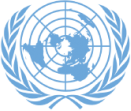Mr. Chairman, Your Excellency Mr. Eladio Loizaga Caballero, Minister for Foreign Affairs of Paraguay,
Honorable Ministers,
Under-Secretary-General and High Representative for LDCs, LLDCs and SIDS, Madam Fekitamoela Katoa Utoikamanu'
Distinguished Delegates.
At the outset, I extend sincere appreciation to Paraguay for providing leadership to the group as the global Chair.
The UN system has always been an important institutional support mechanism to LLDCs. In this regard, I thank and appreciate United Nations Secretary-General Mr. Antonio Guterres for his solidarity with the Group. We are confident that the development-centric reform efforts he has initiated will continue to focus on LLDCs in the spirit of ‘leaving no one behind’.
I also take this opportunity to commend the role played by Under Secretary-General and High Representative for LDCs, LLDCs and SIDS, Madam Katoa Utoikamanu and her team.
As we look forward to a successful Mid-Term Review of the Vienna Programme of Action (VPOA) by the end of 2019, we are fully supportive of the ongoing preparatory works.
Mr. Chairman,
The LLDCs continue to face challenges arising from their remoteness. The geographical constraint has compounded the cost of development; while perpetuating poverty and economic distress.
Our countries are trailing behind in connectivity. The infrastructure gap between the LLDCs and their transit neighbours remains palpable. When it comes to trade competitiveness, they are in the lowest rung.
Without addressing the core challenges they face, the task of transforming the future of these countries and people remains difficult.
Ensuring predictable transit regime and investment in connectivity infrastructures is a sine qua non for the development of LLDCs.
Vienna Programme of Action (VPOA) has well stipulated the priorities. Nepal believes that the best support to LLDCs would be to ensure full, timely and effective implementation of the Program of Action.
This should be done in full synergy with the other global development outcomes, including the 2030 Agenda for Sustainable Development.
The upcoming Mid-term Review in 2019 should identify the implementation gaps and challenges and launch concrete and specific global initiatives to address them.
Mr. Chairman,
LLDCs need to further strengthen their unity and solidarity. Our efforts as well as international cooperation and assistance should be oriented towards achieving more progress across all six priority areas of VPOA.
LLDCs require scaled up foreign direct investments for infrastructure development.
Collaboration with transit countries, support of development partners and partnership with the private sector can enhance the much-needed capacity of LLDCs.
This will accelerate our pace to depart from 'fate of land-lockedness' to 'the reality of land-linkedness'.
The LLDCs, which are also LDCs, face even more challenges.
The geographical disadvantage of land-lockedness can be overcome by enabling LLDCs' meaningful participation in global value chains and international trade. This has remained an unfulfilled aspiration for long. The constraints are not limited only to the supply-side, they range from non-tariff barriers, stringent sanitary and phyto-sanitary measures to skewed provisions of service trade.
In this context, international support measures, not just the ODA but also partnership, technology transfer, and investments can act as great enablers. These measures should be complementary to and supportive of the domestic efforts.
The constraints facing LLDCs are still under-studied. In this regard, the recently established International Think Tank for LLDCs in Mongolia has the potential to play a leading role. The Think Tank requires adequate support and commitment from all sides for its full operation.
Mr. Chairman,
Nepal has mainstreamed the 2030 Agenda, like VPOA before, into its national plans and policies. While we are working on a new development plan with a long term vision, we will continue to accord high priority to infrastructure development and connectivity.
We are confident that the support of the international community will be forthcoming while implementing these important plans.
Let me conclude, Mr. Chairman, by stressing on the need of further consolidating the LLDC unity and solidarity for achieving the goals of VPOA and the 2030 Agenda.
It requires a transformation both in the current practice and pace of 'business as usual'. Together, we can make it a reality through renewed commitments, partnerships and concerted efforts from all sides. Nepal reiterates its full commitment to that end.
I thank you all.


